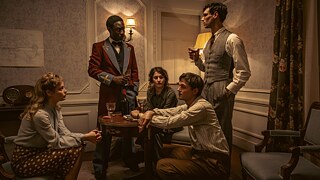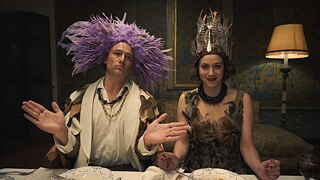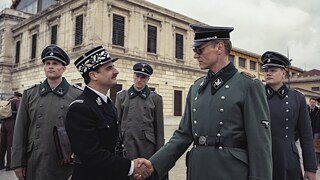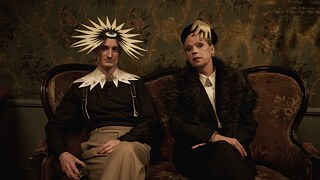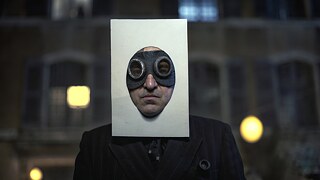German Series in Canada
Transatlantic

"Transatlantic" is a German Netflix original miniseries based on the novel “The Flight Portfolio” by Julie Orringer. The novel and the series tell the true story of American journalist Varian Fry and the Emergency Rescue Committee, which, during the time of the Vichy regime in France, assisted over 2000 refugees, including numerous artists and intellectuals, in escaping from the Nazis.
By Friedel Schmoranzer
In an interview with Deadline.com, co-author of the screenplay Anna Winger (known for “Deutschland 83/86/89” and “Unorthodox”) mentioned that the series drew inspiration from Casablanca and aimed to distinguish itself from productions like Schindler's List. And this influence is evident: Marseille 1940 - “And now the news from Europe”, the first episode starts with the voice of an off-screen news announcer, immediately invoking memories of the beginning of Michael Curtiz's classic.
The production successfully achieves a journey through time: The interior design of the famous Hotel Splendid - filmed at the original location - and the fashion of the era come to life against the backdrop of Marseille's old town. Varian Fry's assistant, Mary Jayne Gold, is unstoppable both in her mission and in her style. Max Ernst's birthday celebration in the countryside transforms into a colorful surreal spectacle, with costumes and decorations taken to imaginative extremes, including a Tarot set specially designed for the series, inspired by the Surrealists, featuring a motif card with Gertrude Stein depicted as a poodle on it.
These refugees need help, and no one else is lifting a finger. I don't need a better reason.
Varian Fry in "Transatlantic"
The portrayal of the alliance between the politically persecuted, Jews, and black resistance fighters joining forces in the fight against Hitler is also one of the remarkable narrative threads that have received little attention in mainstream media formats so far. On the other hand, the character portrayals are problematic at times, coming across as somewhat clichéd. The viewers never get even a glimpse of why Chagall was a groundbreaking artist or why Hannah Arendt and Walter Benjamin forever altered philosophical and cultural theoretical discourses. Walter Benjamin is reduced to a caricature of himself: a disheveled elderly man who behaves like a child and has given up on life. The character isn't explored enough to develop genuine empathy for his fate. On the other hand, the partly fictional, partly reality-derived love stories are given significant prominence in the series. Diversity plays a role, and the series clearly strives to represent various perspectives. Unfortunately, certain love scenes come across as wooden, overtly staged, and seeking too much of an effect. Overall, there are moments when it might seem that the series is attempting to merge different genres, perhaps too many of them, which can create an impression of inconsistency.
The experiences of being stateless and having to flee one's home country are unfortunately very real themes for many people in our time. This connection to the present and the artistic exploration of an untold chapter of World War II deserves the attention.
Transatlantic, Miniserie, 7 Episoden @ 48 - 54 min.
The series was directed by Stéphanie Chuat, Véronique Reymond, and Mia Meyer, based on the screenplay by Anna Winger and Daniel Hendler. Exec Producers: Camille McCurry & Anna Winger
Series Regulars: Gillian Jacobs, Lucas Englander, Cory Michael Smith, Gregory Montel, Ralph
Amoussou, Deleila Piasko, Amit Rahav and Corey Stoll
Other Cast: Moritz Bleibtreu, Alexander Fehling, Jonas Nay, Lolita Chammah, Jodhi May, Rafaela
Nicolay and Henriette Confurius
Watch “TRANSTLANTIC”
worldwide on NETFLIX

